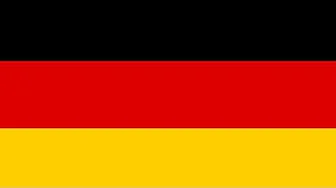Germany national anthem....“Deutschland, Deutschland über alles,”

Details
| Title | Germany national anthem....“Deutschland, Deutschland über alles,” |
| Author | 𝕃𝕖𝕥'𝕤 𝔾𝕠 𝔼𝕩𝕡𝕝𝕠𝕣𝕚𝕟𝕘 𝕨𝕠𝕣𝕝𝕕 |
| Duration | 2:57 |
| File Format | MP3 / MP4 |
| Original URL | https://youtube.com/watch?v=T9m2WiCBu7Y |
Description
SUBSCRIBE:-
https://www.youtube.com/c/LetsGoExploringWorld
My Google+channel:
https://plus.google.com/+Let'sGoExploringWorld
The "Deutschlandlied" (German pronunciation: [ˈdɔʏtʃlantˌliːt] (listen); English: "Song of Germany"), officially titled "Das Lied der Deutschen" (English: "The Song of the Germans"), or part of it, has been the national anthem of Germany since 1922. In East Germany, the national anthem was "Auferstanden aus Ruinen" (English: "Risen from Ruins") between 1949 and 1990.
Since World War II and the fall of Nazi Germany, only the third stanza has been used as the national anthem. The stanza's beginning, "Einigkeit und Recht und Freiheit" ("Unity and Justice and Freedom") is considered the unofficial national motto of Germany,[1] and is inscribed on modern German Army belt buckles and the rims of some German coins.
The music is the hymn "Gott erhalte Franz den Kaiser", written in 1797 by the Austrian composer Joseph Haydn as an anthem for the birthday of Francis II, Emperor of the Holy Roman Empire and later of Austria. In 1841, the German linguist and poet August Heinrich Hoffmann von Fallersleben wrote the lyrics of "Das Lied der Deutschen" as a new text for that music, counterposing the national unification of Germany to the eulogy of a monarch, lyrics that were considered revolutionary at the time. Along with the flag of Germany, which first appeared in its essentially "modern" form in 1778; it was one of the symbols of the March Revolution of 1848.
In order to endorse its republican and liberal tradition, the song was chosen as the national anthem of Germany in 1922, during the Weimar Republic. West Germany adopted the "Deutschlandlied" as its official national anthem in 1952 for similar reasons, with only the third stanza sung on official occasions. Upon German reunification in 1990, only the third stanza was confirmed as the national anthem.
-:lyrics:-
-:German:-
Deutschland, Deutschland über alles,
Über alles in der Welt,
Wenn es stets zu Schutz und Trutze
Brüderlich zusammenhält.
Von der Maas bis an die Memel,
Von der Etsch bis an den Belt,
Deutschland, Deutschland über alles,
Über alles in der Welt!
Deutschland, Deutschland über alles,
Über alles in der Welt!
Deutsche Frauen, deutsche Treue,
Deutscher Wein und deutscher Sang
Sollen in der Welt behalten
Ihren alten schönen Klang,
Uns zu edler Tat begeistern
Unser ganzes Leben lang.
Deutsche Frauen, deutsche Treue,
Deutscher Wein und deutscher Sang!
Deutsche Frauen, deutsche Treue,
Deutscher Wein und deutscher Sang!
Einigkeit und Recht und Freiheit
Für das deutsche Vaterland!
Danach lasst uns alle streben
Brüderlich mit Herz und Hand!
Einigkeit und Recht und Freiheit
Sind des Glückes Unterpfand;
Blüh' im Glanze dieses Glückes,
Blühe, deutsches Vaterland!
Blüh' im Glanze dieses Glückes,
Blühe, deutsches Vaterland!
-:English:-
Germany, Germany over all
Over everything in the world!
When it comes to protecting and defending,
Our unity unites us.1
From the Maas2to the Memel3
From the Etsch4to the Belt,5
Germany, Germany over all
Over everything in the world!
Germany, Germany over all
Over everything in the world!
German wives and fidelity,
German wine and melody
Shall all persevere in the world.
Their fair and ancient tone,
Resounds6in us our noble goal7
Throughout our entire lives.
German women, German trueness
German beer,8and German chorus!
German women, German trueness
German beer,and German chorus!
Unity, justice, and liberty9
For the Fatherland! 10
Let us all strive for that
In brotherhood with heart and hand! 11
Unity, justice, and liberty
Are the foundation for happiness; 12
Bloom in the radiance of this happiness,
Flourish, 'O Fatherland!
Bloom in the radiance of this happiness,
Flourish, 'O Fatherland!